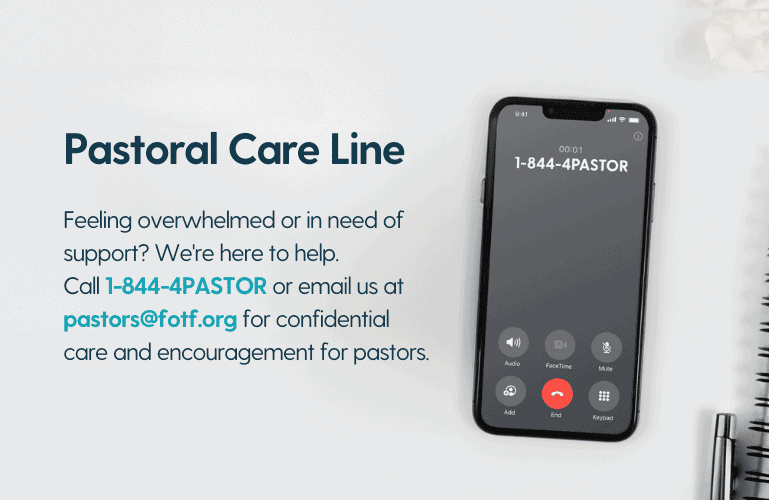Pastoral Ministry and the Beatitudes: Blessed Are the Persecuted
Estimated reading time: 6 minutes
In our reflection on the eight blessings Jesus pronounced at the outset of his famous Sermon on the Mount, we’ve come to the eighth and final beatitude: “Blessed are those who are persecuted for righteousness’ sake, for theirs is the kingdom of heaven” (Matthew 5:10).
In the first seven beatitudes, Jesus refrained from elaborating on the specific kingdom virtue he extolled. But for the eighth and final one He adds an explanation. What is more, He switches from the third person plural to the second person singular, meaning, He addresses His listeners directly: “Blessed are you when others revile you and persecute you and utter all kinds of evil against you falsely on my account. Rejoice and be glad, for your reward is great in heaven, for so they persecuted the prophets who were before you” (Matthew 5:11–12).
By enduring persecution for their faith, Jesus’s followers join the long company of God’s prophets who were similarly persecuted. All the way “from the blood of righteous Abel to the blood of Zechariah the son of Barachiah” (Matthew 23:35).
Following Christ’s Example
According to Jesus, the kingdom of God is populated by those who have been persecuted for the sake of righteousness, just like He has. Reflecting on Jesus’s attitude on his way to the cross, the apostle Peter wrote several decades later,
For this is a gracious thing, when, mindful of God, one endures sorrows while suffering unjustly. For what credit is it if, when you sin and are beaten for it, you endure? But if when you do good and suffer for it you endure, this is a gracious thing in the sight of God. For to this you have been called, because Christ also suffered for you, leaving you an example, so that you might follow in his steps. (1 Peter 2:19–21)
Reaping negative consequences in form of persecution without any fault of our own militates against our innate sense of justice. An unbelieving mindset would urge us to pursue vindication and revenge. Yet Peter argues that suffering for doing good and enduring it is “a gracious thing in the sight of God.” In fact, to do so is our calling as Christ-followers. Yet we can only submit to Christlike suffering as we are enabled to do so by our gracious God.
In this regard, Jesus set the example. As Peter elaborates,
He [Jesus] committed no sin, neither was deceit found in his mouth. When he was reviled, he did not revile in return; when he suffered, he did not threaten, but continued entrusting himself to him who judges justly. He himself bore our sins in his body on[to] the tree, that we might die to sin and live to righteousness. By his wounds you have been healed. For you were straying like sheep, but have now returned to the Shepherd and Overseer of your souls. (1 Peter 2:22–25)
Christ set an example for us not only in the way he lived, but first and foremost in the way he died. The phrase, “He himself bore our sins in his body on the tree (i.e., the cross)” is better translated, “He himself bore our sins in his body onto the tree” (Greek prep. epi + accusative). Imagine Jesus on his way to the cross—not hanging on the cross—and you get the picture of what Peter is getting at here. Observe the manner in which Jesus carried your sins on his way to the cross, and notice his willingness to endure suffering for your sake!
Rather than seek his own vindication, Jesus died “entrusting himself to him who judges justly.” He didn’t pursue his own rights—though he, unlike any of us, was without sin—but left his vindication entirely up to God. As followers of Christ, we’re called to follow Christ’s example in righteous suffering by the grace of God. In a Pauline flourish, Peter affirms that Jesus bore our sins so that “we might die to sin and live to righteousness.” And as we do, others will persecute us just as they persecuted the one we are called to follow.
Enduring Suffering for the Sake of Others
Peter’s entire depiction of Christ unfolds against the backdrop of Isaiah’s suffering Servant. Centuries before the coming of Jesus, the prophet wrote, “All we like sheep have gone astray; we have turned—every one—to his own way; and the Lord has laid on him the iniquity of us all. He was oppressed, and he was afflicted, yet he opened not his mouth; like a lamb that is led to the slaughter, and like a sheep that before its shearers is silent, so he opened not his mouth” (Isaiah 53:6–7).
As to the Lord Jesus Christ, “Surely he has borne our griefs and carried our sorrows; yet we esteemed him stricken, smitten by God, and afflicted. But he was pierced for our transgressions; he was crushed for our iniquities; upon him was the chastisement that brought us peace, and with his wounds we are healed” (Isaiah 53:4–5).
Peter was deeply impacted by Jesus’s words and example. His instruction to readers who were about to suffer Roman persecution clearly echoes Jesus’s eighth and final beatitude:
But even if you should suffer for righteousness’ sake, you will be blessed. Have no fear of them, nor be troubled, but in your hearts honor Christ the Lord as holy, always being prepared to make a defense to anyone who asks you for a reason for the hope that is in you; yet do it with gentleness and respect, having a good conscience, so that, when you are slandered, those who revile your good behavior in Christ may be put to shame. For it is better to suffer for doing good, if that should be God’s will, than for doing evil. For Christ also suffered once for sins, the righteous for the unrighteous, that he might bring us to God.” (1 Peter 3:14–18)
Jesus’s death on the cross was redemptive in a primary way, securing our salvation and providing the foundation for righteous suffering any of us might engage in. Yet in a secondary way, by imitating Christ’s example, we, too, may suffer to bring others to God and thus participate derivatively in Christ’s redemptive mission.
Prayer for Grace
Are you and I willing to endure righteous suffering that brings others to God? Are we willing to sacrifice our rights and yield our desire for present-day vindication for Christ’s sake and a heavenly reward? Are we willing to endure persecution “for righteousness’ sake”? If so, Christ calls us “blessed” and says God’s kingdom is ours.
As Jesus exhorts his followers later in the Sermon, “Love your enemies and pray for those who persecute you, so that you may be sons of your Father who is in heaven” (Matthew 5:44–45). This kind of love requires supernatural enablement! Heavenly Father, give us grace, and help us by your Spirit to love our enemies and to endure persecution for righteousness’ sake. Amen.
©2025, Andreas Köstenberger. All rights reserved. Used by permission.
Read previous article here.
About The Author

Andreas Köstenberger
Andreas Köstenberger is host at Oak Tree Cottage, a hospitality and coaching ministry for pastors, missionaries, and Christian leaders. He is also cofounder of Biblical Foundations and theologian in residence at Fellowship Raleigh.










